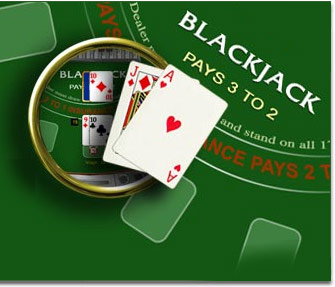Spanish 21
Learn How To Play Spanish 21
Spanish 21 is a variation of blackjack found at casinos across the globe and online. The game is owned by Maque Publishing. A variation of "Spanish 21" called Pontoon is available in Australia and Malaysia, but this version of Spanish 21 has significant rules differences from both regular blackjack and from Spanish 21. The goal of this article is to explain the differences between Spanish 21 and regular blackjack, so that you can learn how to play Spanish 21.
The Deck In Spanish 21
 The biggest difference between Spanish 21 and standard blackjack is the deck. While most blackjack-style games still use a 52-card deck, Spanish 21 uses a 48-card deck (the four tens are removed). While taking out the tens gives an advantage to the house, numerous other rules are in place to benefit the player. In fact, when properly played, Spanish 21 can offer some of the best odds at the casino.
The biggest difference between Spanish 21 and standard blackjack is the deck. While most blackjack-style games still use a 52-card deck, Spanish 21 uses a 48-card deck (the four tens are removed). While taking out the tens gives an advantage to the house, numerous other rules are in place to benefit the player. In fact, when properly played, Spanish 21 can offer some of the best odds at the casino.
In Spanish 21, cards have the same value as in traditional blackjack. An ace counts as 1 or 11. Cards 2 through 9 are scored at face value. Face cards are worth 10 points. The big difference with regular blackjack is that there are no tens in Spanish 21.
Spanish 21 Bonus Payouts
One of the biggest advantages enjoyed by Spanish 21 players is the fact that a player 21 always wins. In other words, a player blackjack always beats a dealer blackjack. Spanish 21 also offers bonus payouts as follows:
- A five card 21 pays out at 3:2.
- A six card 21 pays out at 2:1.
- A seven card 21 pays out at 3:1.
- A 6-7-8 or 7-7-7 pays 3:2.
- If these cards are of the same suit, then they pay out at 2:1.
- If they are comprised only of spades, then they pay out at 3:1.
- If the player gets a suited 7-7-7 when the dealer has a seven card face up, he receives $1000 for bets ranging from $5 to $24 and $5000 for bets over $25. All other players will also get a $50 "envy bonus."
- Any and all of hese bonuses are cancelled out if the player doubles down.
While the bonus for the suited 777 when the dealer has a 7 face up sounds generous, keep in mind that the odds of winning one are 1 in 3.2 million when playing Spanish 21 with 8 decks.
Doubling Down and Splitting in Spanish 21
Spanish 21 players are allowed to double down on any number of cards. In most casinos, players may also hit and double down after splitting aces. After doubling down, a player may also surrender by giving up his original bet. This is known as "double down rescue."
Even though Spanish 21 players are allowed to double down on any number of cards, you will probably double down less often than that because of the lack of tens in the deck. This may also lead to players hitting where they might stand in traditional blackjack.
If the dealer stands on a soft 17, the house edge on Spanish 21 is only 0.40%. If the dealer hits on a soft 17 with redoubling allowed, the house edge is 0.42%. If the dealer hits on a soft 17 with redoubling not allowed, the house edge rises to 0.76%. These house edges assume perfect strategic play.


 Cherry Jackpot
Cherry Jackpot

